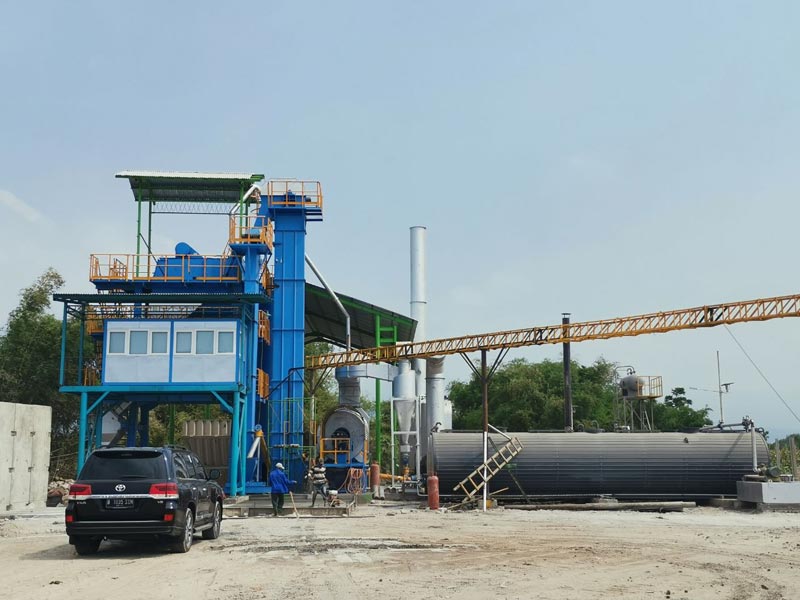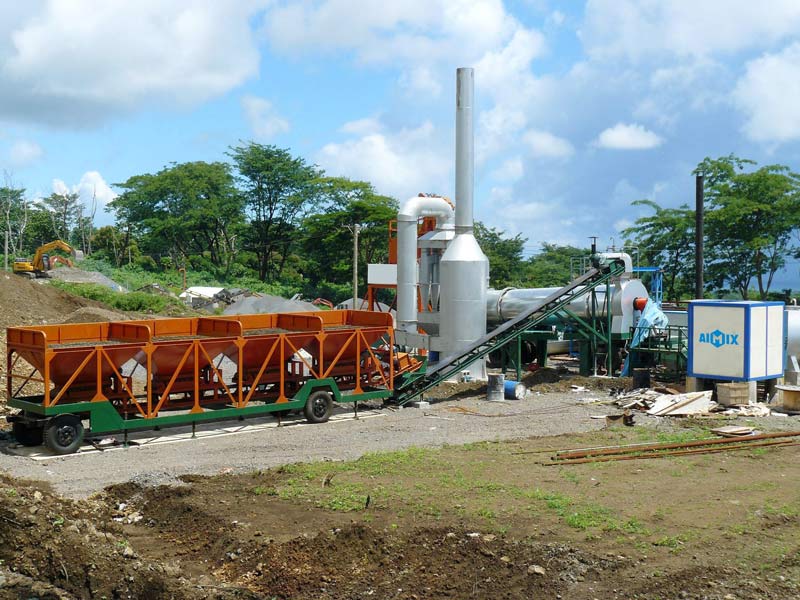Asphalt plants come in various configurations to serve different types of infrastructure projects, such as highways, airports, and municipal roads. The asphalt plant price varies significantly depending on the project scale, required asphalt quality, and plant specifications. This article explores how plant types like batch mix asphalt plants, mobile asphalt plants, and mini asphalt plants align with different applications—and how these choices impact pricing.
Project Requirements and Their Influence on Plant Selection
Every infrastructure project has its own technical standards and production demands. Highway construction requires high-capacity and high-quality asphalt. Airports demand specialty mixes with superior durability. Municipal roadwork, on the other hand, often involves smaller-scale and short-term applications. The size, type, and performance level of the asphalt plant must match these needs, which in turn shapes the cost of asphalt plant(planta de asfalto precio).

Highway Projects: Focus on Capacity and Efficiency
Highway construction typically spans long distances and involves high-volume asphalt production under strict timelines. This calls for large-scale batch mix asphalt plants with advanced automation, high-precision weighing systems, and ample storage for aggregates and finished materials.
The asphalt plant price for highway projects ranges from medium to high, depending on the plant’s capacity (100–400 tons per hour), fuel efficiency, and customization options. Plants with integrated dust collectors, RAP systems, or modular designs for future expansion also cost more but offer long-term performance benefits.
Airport Runways: Premium Quality and Precision
Airport runways require exceptionally durable and precisely mixed asphalt to withstand heavy aircraft loads and extreme weather. This typically necessitates the use of high-performance batch mix asphalt plants equipped to handle polymer-modified bitumen or stone matrix asphalt (SMA).
Due to these specialized requirements, the asphalt plant price for airport applications is on the higher end. Plants may also require additional environmental controls and certification to meet aviation authority regulations, which increases both the capital and operating costs.
Municipal Projects: Flexibility and Cost-Effectiveness
Municipal road repairs, small streets, bike paths, and pedestrian walkways are often executed at a smaller scale and within limited budgets. In these cases, a mini asphalt plant or a compact mobile asphalt plant(planta asfaltica movil) becomes the ideal solution.
Mini asphalt plants offer lower output (10–40 tons per hour) but are more affordable, easier to transport, and quicker to install. These features make them ideal for cities looking to maintain roads efficiently without large investments. Mobile asphalt plants offer the added benefit of being able to move between multiple job sites with ease.

Comparing Asphalt Plant Types by Application
Let’s take a closer look at how different types of plants align with project types and how this affects the overall asphalt plant price.
Batch Mix Asphalt Plant
This plant type is preferred for projects where mix precision and flexibility are paramount—such as highways and airports. It allows the operator to change asphalt formulas easily and ensures uniform quality in each batch.
However, batch mix asphalt plants are usually more expensive due to their complexity, higher capacity, and additional components like dust filters and recycling units. While this investment is justified for large-scale, high-spec projects, it may not be cost-effective for smaller municipal works.
Mobile Asphalt Plant
Mobile asphalt plants are ideal for contractors working on scattered or short-term projects. They can be relocated quickly and don’t require heavy infrastructure for setup. These plants are commonly used in municipal or rural highway projects where transportation logistics make a stationary plant inefficient.
The mobile asphalt plant price varies based on production capacity, mobility features, and mix quality. While less expensive than a full-scale stationary plant, advanced mobile models capable of producing high-quality mixes may approach similar pricing levels.
Mini Asphalt Plant
As the most compact and cost-effective option, mini asphalt plants(mini planta de asfalto) are widely used by local governments and small contractors. Their simplicity translates into ease of use, quick setup, and minimal maintenance.
The mini asphalt plant price is the lowest among all categories, making it a practical choice for budget-conscious clients focused on patching, repairs, and small-scale paving tasks. However, limited production capacity makes them unsuitable for highways or airport construction.
Other Cost Factors Beyond Plant Type
In addition to plant type and project scale, several other factors influence asphalt plant prices:
- Automation level: Fully automated plants are more expensive but reduce labor costs and improve accuracy.
- Emission controls: Advanced dust collectors or eco-friendly burners increase costs but ensure environmental compliance.
- Raw material storage: Plants with larger aggregate hoppers and silos will have higher upfront costs.
- Customization: Any specialized configuration (e.g., for modified bitumen) will raise the price.
Conclusion
The choice of asphalt plant significantly affects project cost, performance, and efficiency. Highways and airports require robust, high-capacity batch mix asphalt plants(planta de asfalto discontinua) that come at a premium price but deliver the required precision and output. In contrast, municipal projects benefit from compact mobile or mini asphalt plants, which offer a cost-effective, flexible solution.
By aligning plant selection with project scale and technical requirements, contractors can strike the right balance between performance and budget—ensuring that the asphalt plant price delivers value over the long term.
